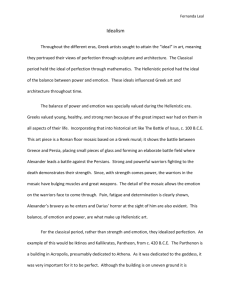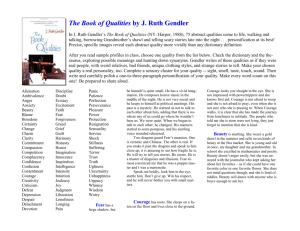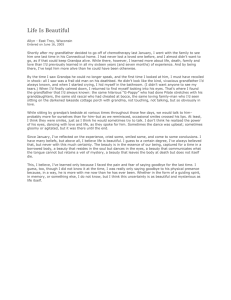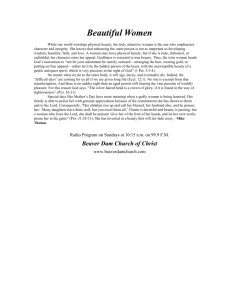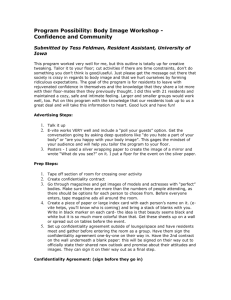Classical Project Write Up
advertisement
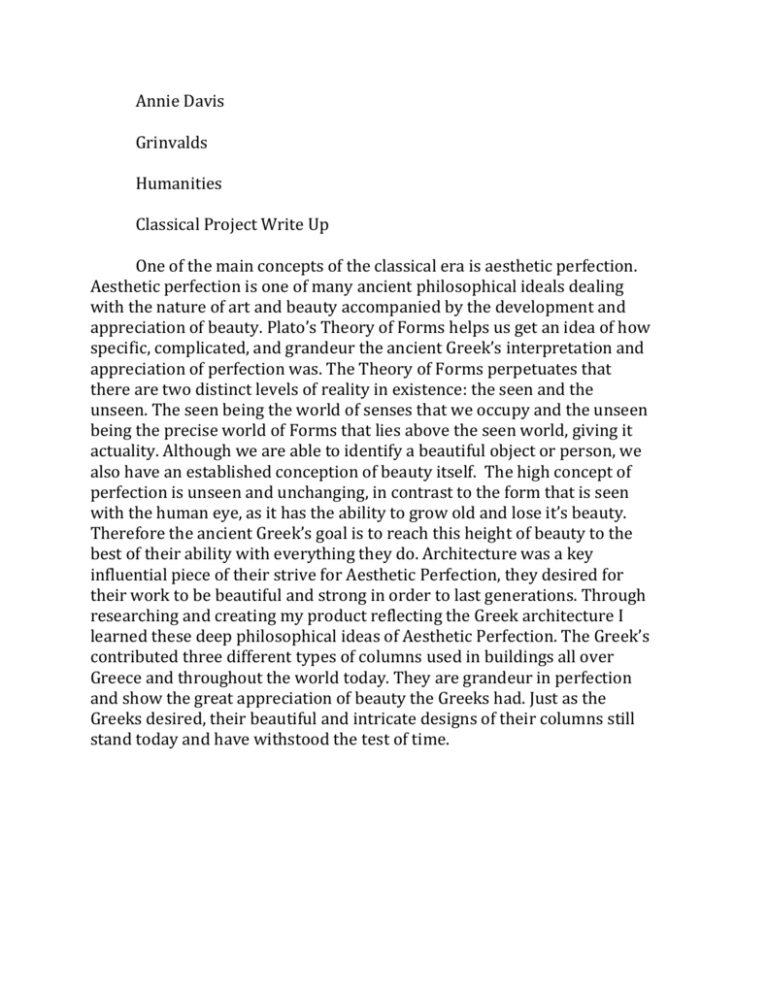
Annie Davis Grinvalds Humanities Classical Project Write Up One of the main concepts of the classical era is aesthetic perfection. Aesthetic perfection is one of many ancient philosophical ideals dealing with the nature of art and beauty accompanied by the development and appreciation of beauty. Plato’s Theory of Forms helps us get an idea of how specific, complicated, and grandeur the ancient Greek’s interpretation and appreciation of perfection was. The Theory of Forms perpetuates that there are two distinct levels of reality in existence: the seen and the unseen. The seen being the world of senses that we occupy and the unseen being the precise world of Forms that lies above the seen world, giving it actuality. Although we are able to identify a beautiful object or person, we also have an established conception of beauty itself. The high concept of perfection is unseen and unchanging, in contrast to the form that is seen with the human eye, as it has the ability to grow old and lose it’s beauty. Therefore the ancient Greek’s goal is to reach this height of beauty to the best of their ability with everything they do. Architecture was a key influential piece of their strive for Aesthetic Perfection, they desired for their work to be beautiful and strong in order to last generations. Through researching and creating my product reflecting the Greek architecture I learned these deep philosophical ideas of Aesthetic Perfection. The Greek’s contributed three different types of columns used in buildings all over Greece and throughout the world today. They are grandeur in perfection and show the great appreciation of beauty the Greeks had. Just as the Greeks desired, their beautiful and intricate designs of their columns still stand today and have withstood the test of time.



